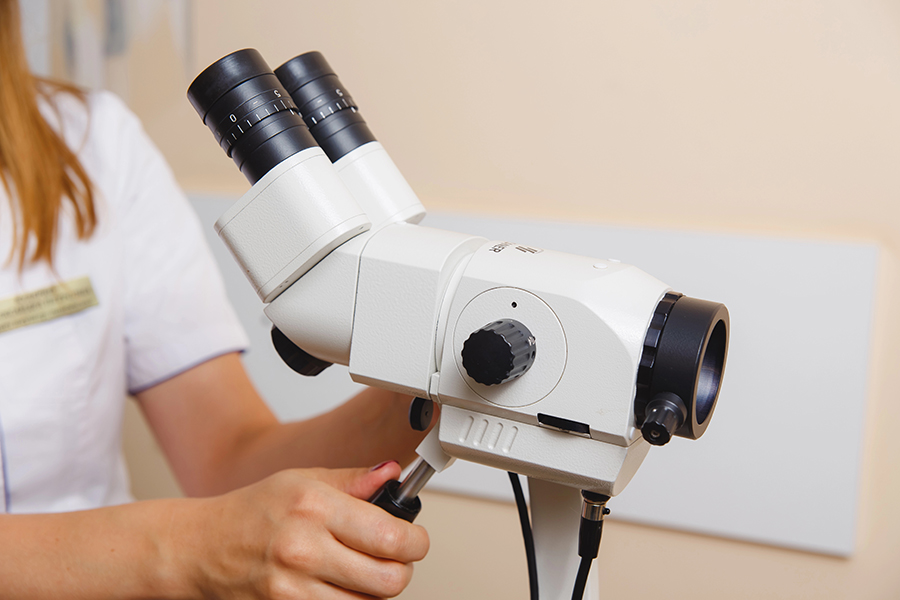Colposcopy is an exam that looks closely at the cervix. It uses a special magnifying instrument to do this. The instrument also may be used to look at the vagina and vulva.
Colposcopy, which is pronounced kol-POS-kuh-pee, looks for signs of disease. A colposcopy may be recommended if a Pap test result shows something concerning. If your healthcare team finds a suspicious area of cells during your colposcopy procedure, a sample of tissue can be collected for testing.
It’s common to feel anxious before a colposcopy exam. Knowing what to expect during your colposcopy may help you feel more comfortable.
A healthcare professional may recommend colposcopy if a Pap test or pelvic exam finds something concerning.
Colposcopy can help diagnose:
- Genital warts.
- Inflammation of the cervix, called cervicitis.
- Noncancerous growths on the cervix, such as polyps.
- Precancerous changes in the tissue of the cervix.
- Precancerous changes in the tissue of the vagina.
- Precancerous changes of the vulva.
- Cancer of the cervix, called cervical cancer.
- Cancer of the vagina, called vaginal cancer.
- Cancer of the vulva, called vulvar cancer.
Risks
Colposcopy is a safe procedure that has very few risks. Rarely, complications from biopsies taken during colposcopy can happen. A biopsy is a procedure to remove a sample of tissue for testing in a lab. Biopsy complications may include:
- Heavy bleeding.
- Infection.
- Pelvic pain.
How you prepare
To prepare for your colposcopy, your healthcare team may recommend that you:
- Avoid scheduling your colposcopy during your period.
- Don’t have vaginal intercourse the day or two before your colposcopy.
- Don’t use tampons the day or two before your colposcopy.
- Don’t use vaginal medicines for the two days before your colposcopy.
- Take a pain reliever, such as ibuprofen (Advil, Motrin IB, others) or acetaminophen (Tylenol, others), before going to your colposcopy appointment.



